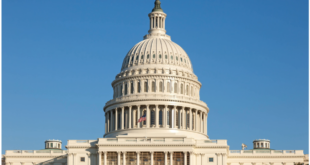No surprise here: Government rules can cost small businesses big time.
New research from the National Federation of Independent Business (NFIB) shows that overregulation increasingly costs small business owners time, effort and money.
The sheer quantity of regulations is a growing burden in itself, says Holly Wade, director of research and policy an alysis for NFIB.
NFIB has 325,000 members from nearly every business sector and advocates for the interests of independents. The organization uses research to educate lawmakers on how their decisions impact businesses.
Regulations are worrisome in every industry, and business owners’ concerns stem from the time and cost of learning how to follow a growing number of new policies, Wade says.
“For most businesses, it’s the owners themselves trying to better understand regulations that affect them,” she says. “So, the more regulations that impact them, the more it’s taking time out of the owner’s day to deal with that instead of running their business.”
NFIB’s research shows that regulations, especially on the federal level, are a “very serious” or “somewhat serious problem” to about 50 percent of small business owners. Regulations have ranked as one of small business owners’ top concerns since 2012, Wade says. In recent years, new regulatory burdens have come, for example, from the Affordable Care Act.
Similarly, more than 30 percent of independent home improvement retailers consider regulations and taxes to be one of their biggest challenges to long-term growth, according to 2016 research from the North American Retail Hardware Association (NRHA).
“The cost of complying with these regulations is the biggest hit,” Wade says. “Having to reorganize their labor force, add benefits, deal with the tax complexity or pay a tax preparer to deal with added issues in compliance. All of these regulations have a price attached to them.”
President Donald Trump’s executive order requiring federal agencies to propose two regulations to eliminate for every new rule proposed could be helpful, Wade says.
“Hopefully we’ll see some relief for small business owners,” she says. “Scaling back on the volume of regulations that they have to comply with would be a huge step in helping.”
 Holly Wade
Holly Wade
Director of Research and Policy Analysis
National Federation of Independent Business (NFIB)
Wade provides analysis on public policy issues
and economic trends affecting small businesses.
She compiled NFIB’s recent poll on small businesses and regulations.
 Hardware Retailing The Industry's Source for Insights and Information
Hardware Retailing The Industry's Source for Insights and Information








